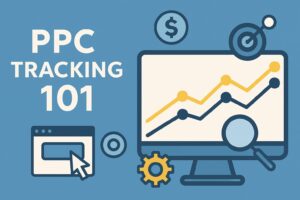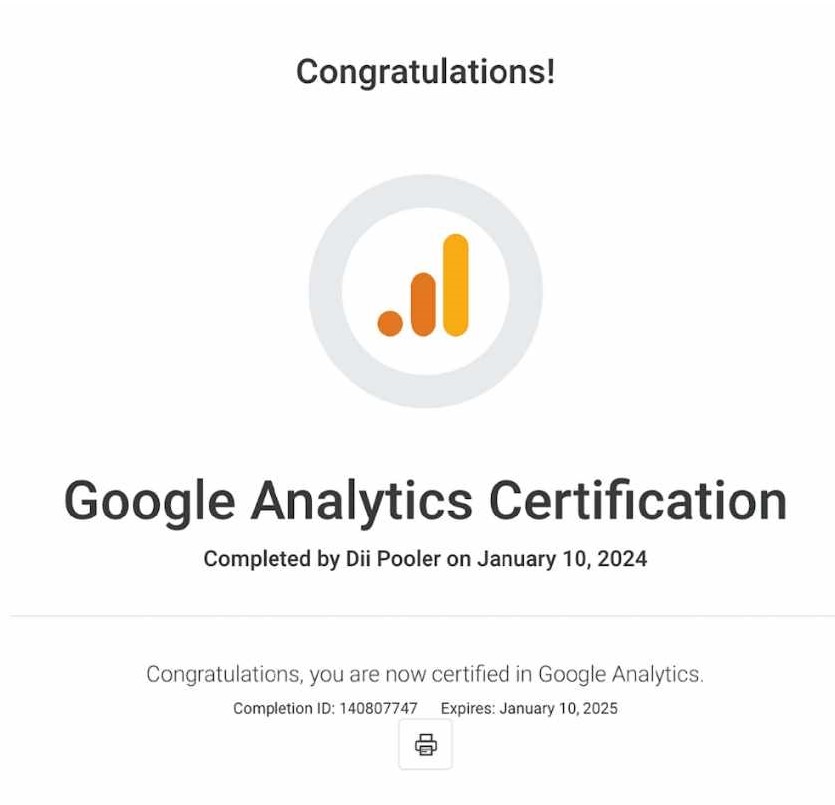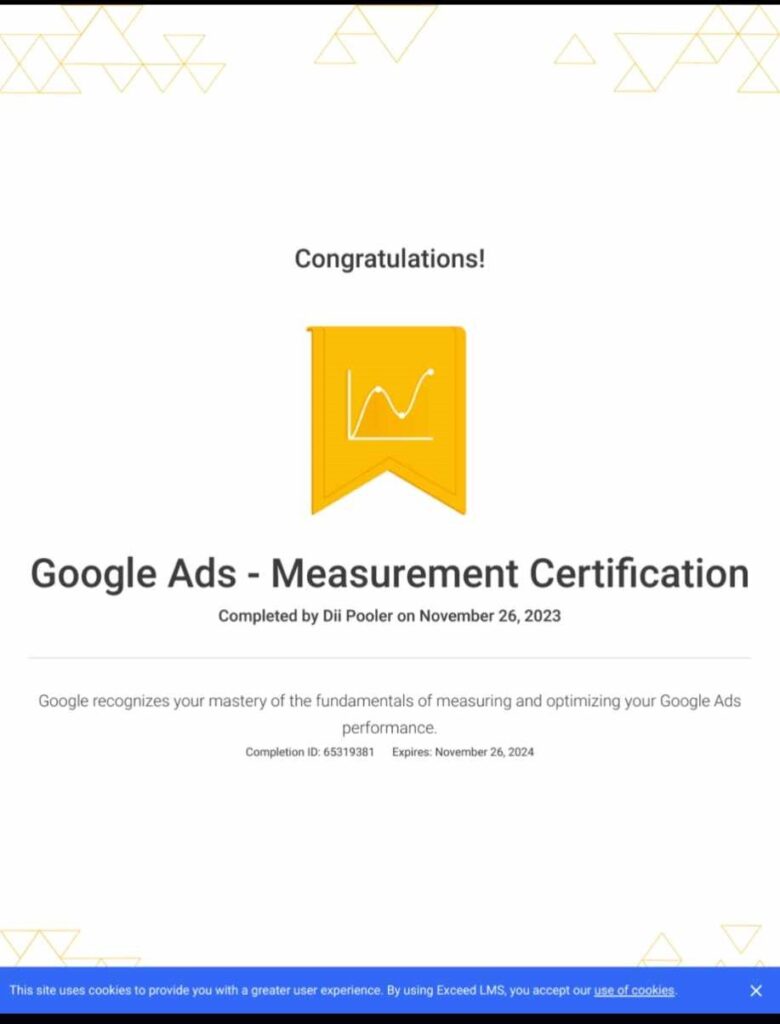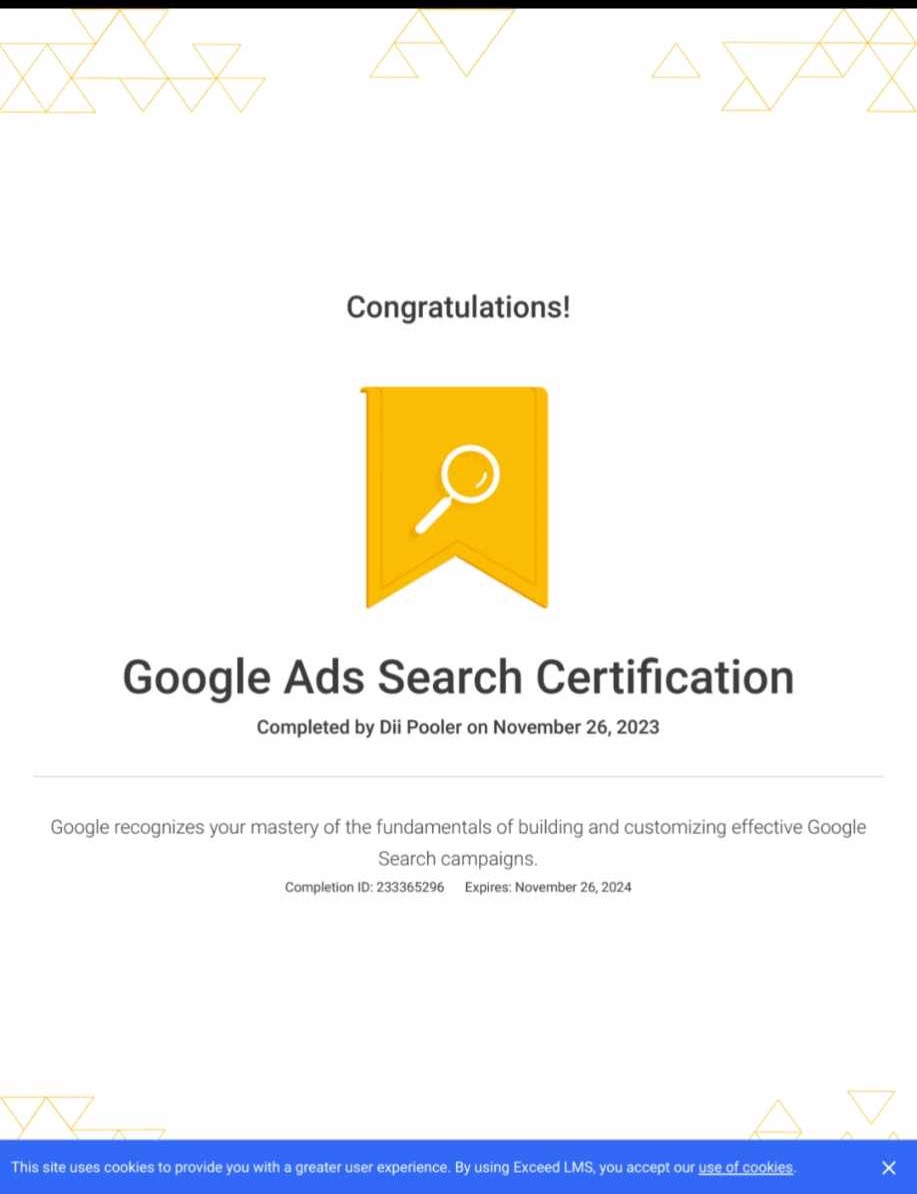Google Ads Audits & Why They’re Important
Google Ads continues to be the cornerstone of performance marketing strategies. However, with increasing competition, rising costs per click, and the integration of AI-powered automation, the margin for error has never been smaller. A comprehensive Google Ads audit has evolved from a nice-to-have exercise to a business-critical necessity for maintaining competitive advantage and maximizing return on investment.
The stakes are higher in 2025. According to WordStream’s latest benchmarks, the average cost per lead increased 5.13% year-over-year, while conversion rates saw mixed results across industries. Meanwhile, Google’s continued rollout of AI features like Performance Max, Demand Gen campaigns, and enhanced automated bidding strategies means that account optimization requires both strategic insight and technical precision.
What is a Google Ads Audit in 2025?
A Google Ads audit is a comprehensive, systematic evaluation of your advertising account’s performance, structure, and strategic alignment with business objectives. Unlike basic performance reviews, a professional audit examines every layer of your account—from high-level campaign strategy to granular technical configurations—to identify optimization opportunities, eliminate inefficiencies, and align your advertising efforts with current platform capabilities and market conditions.
Modern Google Ads audits must account for the platform’s AI-driven features, cross-campaign interactions, and the increasingly complex attribution landscape. This means evaluating not just what’s happening within your account, but how your campaigns interact with Google’s broader ecosystem of automation and machine learning algorithms.
The Strategic Importance of Regular Audits
Google Ads audits serve two fundamental purposes: diagnostic evaluation for existing accounts and strategic foundation-building for new implementations. In 2025’s competitive landscape, these audits have become essential for several critical reasons:
Performance Optimization: With average CPCs increasing across most industries, identifying and eliminating wasteful spend has never more important for maintaining profitability.
AI Integration Assessment: Evaluating how effectively your account leverages Google’s AI-powered features, from Smart Bidding to automated ad creation, directly impacts competitive positioning.
Attribution Accuracy: With iOS 14.5+ privacy changes and the deprecation of third-party cookies, ensuring accurate conversion tracking and attribution modeling is crucial for data-driven decision making.
Competitive Positioning: Regular audits help identify market shifts and competitive threats that may require strategic pivots or budget reallocation.
The 2025 Three-Tier Audit Framework
Tier 1: Strategic Alignment Assessment
The strategic tier examines your Google Ads account through the lens of business objectives and market positioning. This level focuses on ensuring your advertising strategy remains aligned with evolving business goals and market conditions.
Core Strategic Elements:
Campaign Architecture Review: Evaluating whether your campaign structure effectively supports current business priorities and customer acquisition goals. This includes assessing campaign types (Search, Performance Max, Demand Gen, Shopping) and their strategic roles within your overall marketing funnel.
Audience Strategy Analysis: Examining targeting approaches, audience segmentation effectiveness, and the integration of first-party data. In 2025, this includes evaluating Customer Match implementations, similar audience performance, and in-market audience utilization.
Geographic and Demographic Alignment: Assessing whether your targeting parameters reflect current market opportunities and business expansion plans, including evaluation of local market penetration and demographic performance variations.
Competitive Landscape Position: Analyzing impression share data, auction insights, and competitive positioning to identify strategic opportunities and threats within your market space.
Tier 2: Business Performance Evaluation
The business tier dives into performance metrics and their alignment with key business indicators. This level transforms campaign data into actionable business insights.
Performance Metrics Analysis:
Revenue Attribution Assessment: Evaluating the accuracy and completeness of conversion tracking, including cross-device attribution, view-through conversions, and assisted conversion analysis. This is particularly critical given the ongoing privacy changes affecting tracking accuracy.
Customer Acquisition Cost Optimization: Analyzing CAC trends across different campaigns, audiences, and time periods to identify efficiency opportunities and budget reallocation needs.
Lifetime Value Integration: Assessing how well your bidding strategies account for customer lifetime value, including the use of value-based bidding and customer journey optimization.
Budget Efficiency Analysis: Examining budget allocation across campaigns, identifying underperforming spend areas, and evaluating opportunities for strategic reallocation based on performance data.
Tier 3: Technical Implementation Review
The technical tier examines the tactical execution of your Google Ads strategy, focusing on configuration accuracy and optimization opportunities.
Technical Configuration Assessment:
Account Structure Efficiency: Evaluating campaign organization, ad group structure, and keyword organization for optimal performance and management efficiency. This includes assessment of single keyword ad groups (SKAGs), campaign segmentation strategies, and scalability considerations.
Bidding Strategy Optimization: Analyzing current bidding approaches, automated vs. manual bidding performance, and alignment with campaign objectives. In 2025, this includes evaluation of Target CPA, Target ROAS, Maximize Conversions, and the newer Enhanced CPC implementations.
Quality Score Analysis: Comprehensive evaluation of Quality Score factors including expected click-through rate, ad relevance, and landing page experience. This assessment identifies specific improvement opportunities for cost reduction and impression share growth.
Ad Copy and Creative Performance: Analyzing responsive search ad performance, asset-level insights, and creative testing methodologies to optimize message effectiveness and audience engagement.
Landing Page Experience Evaluation: Assessing landing page quality, relevance, mobile experience, and conversion optimization to ensure seamless user experience from click to conversion.
Executing a Professional Google Ads Audit: Step-by-Step Methodology
Phase 1: Data Collection and Baseline Establishment
Account Access and Historical Analysis: Secure appropriate access levels and extract 12-24 months of historical performance data to establish baseline metrics and identify seasonal patterns.
Stakeholder Interview Process: Conduct structured interviews with key stakeholders to understand business objectives, recent changes, and success metrics that may not be apparent from account data alone.
Competitive Intelligence Gathering: Utilize auction insights, competitive analysis tools, and market research to understand your positioning within the competitive landscape.
Phase 2: Comprehensive Account Analysis
Campaign Structure Evaluation: Systematically review each campaign type, analyzing structure logic, targeting parameters, and strategic alignment with business objectives.
Keyword Portfolio Assessment: Evaluate keyword relevance, search volume trends, competitive intensity, and alignment with customer search behavior and business offerings.
Ad Creative Performance Analysis: Analyze ad copy performance across different audience segments, device types, and campaign contexts to identify optimization opportunities.
Bidding and Budget Analysis: Examine bidding strategy effectiveness, budget utilization patterns, and spend efficiency across different campaign elements.
Phase 3: Technical Configuration Review
Conversion Tracking Validation: Verify tracking accuracy, attribution model appropriateness, and conversion value assignments to ensure data reliability for optimization decisions.
Account Settings Optimization: Review location targeting, device bid adjustments, audience exclusions, and scheduling settings to eliminate inefficiencies and improve targeting precision.
Extension Implementation Assessment: Evaluate sitelink, callout, structured snippet, and other extension implementations for completeness and effectiveness.
The Business Impact of Professional Audits
Immediate Optimization Opportunities
Cost Reduction Through Waste Elimination: Professional audits typically identify 15-30% waste reduction opportunities through improved negative keyword implementation, geographic refinement, and device targeting optimization.
Performance Enhancement via Quality Score Improvement: Systematic Quality Score optimization often yields 20-40% cost-per-click reductions while improving ad positioning and impression share.
Conversion Rate Optimization: Landing page and ad copy alignment improvements frequently result in 25-50% conversion rate improvements across optimized campaigns.
Strategic Growth Opportunities
Market Expansion Identification: Audits often reveal untapped geographic markets, audience segments, or keyword categories that represent significant growth opportunities.
Campaign Type Diversification: Analysis may identify opportunities to leverage newer campaign types like Performance Max or Demand Gen to expand reach and improve efficiency.
Automation Integration: Proper implementation of Google’s AI-powered features can improve performance while reducing manual management requirements.
Long-Term Competitive Advantages
Improved Market Intelligence: Regular audits provide ongoing competitive insights that inform strategic decision-making and market positioning.
Enhanced Forecasting Accuracy: Better understanding of account performance drivers improves budget planning and growth projection accuracy.
Organizational Learning: Audit findings educate internal teams on best practices and platform developments, building long-term capability.
2025 Audit Considerations: What’s New This Year
AI Integration Assessment
Performance Max Evaluation: Analyzing Performance Max campaign effectiveness, asset performance, and integration with other campaign types for optimal account structure.
Smart Bidding Performance: Evaluating automated bidding strategy performance across different campaign types and identifying opportunities for optimization or manual intervention.
Responsive Search Ad Optimization: Assessing RSA asset performance, pinning strategies, and headline/description combinations for maximum effectiveness.
Privacy and Attribution Updates
Enhanced Conversions Implementation: Verifying proper setup and performance of enhanced conversions for web and leads to improve attribution accuracy.
First-Party Data Integration: Evaluating Customer Match implementation, audience building strategies, and data utilization for improved targeting.
GA4 Integration Assessment: Ensuring proper Google Analytics 4 integration and utilizing GA4’s enhanced attribution capabilities for better campaign optimization.
Emerging Campaign Types and Features
Demand Gen Campaign Evaluation: For accounts utilizing Demand Gen campaigns, analyzing performance across YouTube, Discover, and Gmail placements.
Video Action Campaign Assessment: Evaluating video advertising performance and integration with broader campaign strategy.
Local Campaign Optimization: For applicable businesses, analyzing local campaign performance and integration with Google Business Profile.
Post-Audit Implementation: Maximizing ROI from Audit Insights
Prioritized Action Planning
Impact vs. Effort Matrix: Categorize audit recommendations by potential impact and implementation complexity to prioritize high-impact, low-effort optimizations.
Timeline Development: Create realistic implementation timelines that account for testing requirements, learning periods, and resource constraints.
Success Metrics Definition: Establish clear KPIs and measurement frameworks to track the effectiveness of implemented changes.
Implementation Best Practices
Structured Testing Approach: Implement changes systematically with proper control groups and statistical significance testing to validate improvement hypotheses.
Continuous Monitoring: Establish regular monitoring protocols to track performance changes and identify any negative impacts requiring adjustment.
Documentation and Learning: Document all changes and results to build institutional knowledge and inform future optimization efforts.
The Ongoing Audit Schedule: Beyond One-Time Analysis
Quarterly Strategic Reviews
Comprehensive strategic audits should be conducted quarterly to assess major campaign performance trends, competitive positioning changes, and strategic alignment with evolving business objectives.
Monthly Technical Assessments
Monthly technical reviews focus on performance metric analysis, Quality Score monitoring, and tactical optimization opportunities to maintain optimal account health.
Continuous Performance Monitoring
Daily and weekly monitoring of key performance indicators ensures rapid identification and response to significant performance changes or market shifts.
Conclusion: Audit as Competitive Advantage
In 2025’s increasingly competitive digital advertising landscape, regular Google Ads audits have evolved from optional optimization exercises to essential business practices. The complexity of modern Google Ads features, combined with rising costs and increased competition, makes systematic account evaluation critical for maintaining profitability and growth.
A professional audit approach—examining strategic alignment, business performance, and technical implementation—provides the comprehensive insights necessary for data-driven optimization and competitive advantage. Organizations that implement regular audit processes consistently outperform those relying on ad-hoc optimization approaches.
The investment in professional Google Ads audits delivers measurable returns through waste elimination, performance enhancement, and strategic opportunity identification. More importantly, the ongoing learning and capability building resulting from systematic audits creates sustainable competitive advantages that compound over time.
For businesses serious about maximizing their Google Ads ROI in 2025, professional audits represent not just an optimization opportunity, but a strategic necessity for long-term success in digital advertising.











